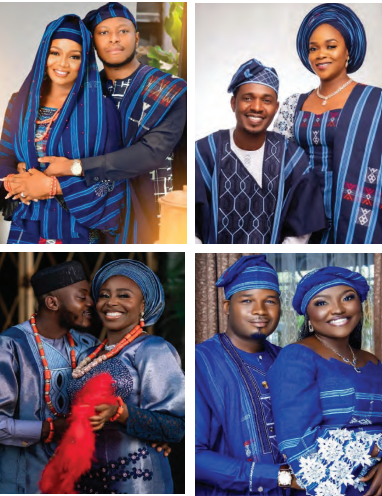Marriage is a sacred obligation in every culture of the world. Details ranging from courtship, payment of dowry, marital rituals and other celebrations vary across creeds, spiritual dispositions and traditional obligations. Amongst the Gbagyi speaking people of Nigeria, the ethnic group found predominantly in Central Nigeria, marriage and the process thereof is the same safe for slight discrepancies attributed to dialectical differences.
In a typical Gbagyi culture marriage is a thorough but exciting endeavour. Initiation into the marital life for a male gbagyiza begins between the age of fifteen to eighteen as boys within this age bracket are considered capable of producing offspring. For the female gbagyi child, betrothalment could be considered for her between the early age of eight and ten. This is due to the expectation that the girl will be ripe for marriage by the time the dowry payment is completed and a marriage date fixed.
Courtship
This is where the fun is or the pain for some people. Gbagyi people attach unqualified importance and strictness to courtship such that it lasts for a period of seven years.
There are two approaches to courtship among the Gbagyi people. The first but rare method of courtship is totally in the interest of the groom’s parents. This is when the parents of a boy directs the boy’s attention towards a particular girl or accost the family of the said girl on his behalf. This is usually the case when parents of the groom desire their son to marry from a particular family, for private or popular reasons.
The second approach lets the groom to hunt for a wife by himself. He reports to his parents whenever he finds a girl of his liking. Then the next phase is initiated.
At this stage the groom’s parents send a delegation to the bride’s parents. The bride’s parents in turn request some time to confer with the girl. A date is fixed when the groom’s delegation returns with two sets of plates. These sets of plates are then accepted by the bride’s parent to signify acceptance of their proposition. The delegation is then referred to a member of the bride’s family who is to serve as intermediary known as migbiyi. The migbiyi deals with everything from here.
The next phase in the courtship is the payment of dowry. The groom is hereby required to do some farm work for the bride’s parents for a period of seven years. This farm work includes making of yam heaps, weeding of ridges and harvesting of farm produce. Usually the groom is assisted by his friends, and the farming continues, two or three times in a year, for seven consecutive years. To test the groom’s ability to feed the bride he’s asked to bring an equivalent of 50kg of guinea corn of his own harvest. This is called wyiga. The groom begins with one wyiga and continues to add one until the seventh year when he presents seven wyiga shortly before picking a date for the marriage.
The Wedding Rites
The wedding begins with the sacrifice of chickens or goats asking for the blessings of the gods upon the couple. The bride is thereafter released to the groom’s family and friends. It is customary to prepare a meal with eleven chickens, ten of which goes to the bride’s parents and the last to the migbiyi. The bride is accompanied to the groom’s house by five or more maids. That day, at the groom’s house, celebrations ensued from sunset till dawn. The next morning, an elderly woman will call out several names carefully chosen for the bride. When the bride hears one which suits her, she rushes out of her hut and is taken to the bathroom where the same elderly woman strips her half naked and inspects her body features and as such determines her chastity. This is called the bridal bath. Again, the villagers party till the break of dawn. On the second morning, the maids who accompanied the bride go into the bush to fetch firewood for the bride. Then they fetch water for all the old people in the village. After this, other marriage festivities which include singing and dancing competitions, wrestling matches et al continue for seven days. On the seventh day, the accompanying maids return to their village leaving only one behind who is called mula cheknu to help the bride with domestic chores. Everybody disperse and the couple begins their matrimonial journey.





